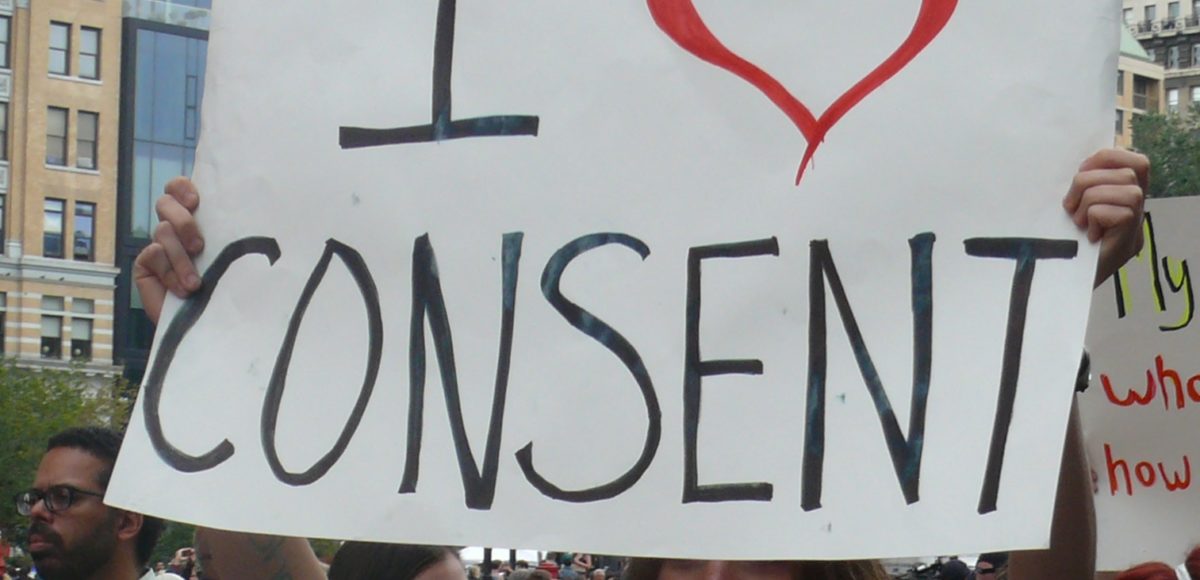In recent years, the issue of sexual assault—especially on college campuses—has commanded heightened public attention. Despite a 58% reduction in rape rates across all age groups between 1995 and 2010, outrage over a “sexual assault crisis” seems stronger than ever. The Obama Administration has now taken action, ordering schools governed by Title IX to employ a lower evidentiary standard for sexual harassment and assault cases.
Feminists in particular have popularized the term “rape culture”—the idea that sexual assault is the product of longstanding social mores, such as an underlying “historic and systemic” violence, or an underlying cultural sexism—often flatly labeled “patriarchy.” Social symptoms commonly labeled expressions of this “rape culture” include “victim blaming,” “slut shaming,” “sexual objectification,” and “rape trivialization.”
Rape and sexual assault are morally atrocious and profoundly evil. And the idea of a “rape culture” does have its finger on an important issue: that this is a deep cultural problem which cannot be resolved easily by harsher penalties (or louder protests). But the social factors identified by proponents of the “rape culture” diagnosis are relatively superficial; to focus on them is to ignore the deeper causes of the rapist’s mentality.
While some sexual assault is horrendously violent, a high percentage of sexual assaults occur when both parties have been drinking, and often this counts as sexual assault only because the victim is simply not in a position to consent. Assuredly, any sex without consent is inexcusable. But the fact remains that sexual assault is not always violent in the sense of involving a physical struggle. Victims in these cases will either not think to protest or to put up physical resistance, and may only later realize that they were not in a position to consent. Sexual assault cannot be an expression of an underlying culture of violence when so many sexual assaults involve no physical struggle. What makes sexual assault of an intoxicated victim a crime is that the victim lacks the capacity to rationally consent.
Some feminists blame sexism. But while many rapes may be partially motivated by sexism, sexism is not the key element explaining their continued occurrence. There are plenty of sexists who would never dare commit the act of rape. And as RAINN reports, many rapists are more likely to become serial criminals than serial rapists: 46% are re-arrested for other crimes, including other violent crimes and property offenses. Many rapists are thus equal opportunity victimizers: they don’t seem to care about getting anybody’s consent for anything.
It takes the mindset of a criminal to commit the act of rape—the attitude of someone with a one-track mind bent on satisfying his momentary whims, unconcerned with abstract hindrances like the “consent” of others. But why does consent matter?
Consider the quintessential example of disregard for the consent of another: slavery. Like the rapist, the slave master assumes control over the slave’s body—not for the span of one encounter, but for the slave’s entire life. Slaves knew that if ever they did resist, the whip was sure to follow. The master treated his slaves as mere tools or beasts of burden that existed for the sake of his profit and pleasure. As Frederick Douglass put it, “The first work of slavery is to mar and deface those characteristics of its victims which distinguish men from things, and persons from property. . . . It reduces man to a mere machine.”
What distinguishes persons from property, or even from pets? Unlike other animals, human beings live and flourish through the use of their rational minds. To ignore and trample on the consent of another is to treat him as a mindless object to be used and abused as one pleases—to act as an animal oneself. To respect the consent of another is to acknowledge the sanctity of his sovereign mind and his right to live in accordance with it, just as one demands the same sovereignty and right for oneself.
Consent is especially important to the value of sexual interaction. Unlike dogs who, out of instinct, mount everything in sight just because they can, human beings aren’t bound to act on whim. We spend our lives scrupulously searching for that perfect companion for life’s journey. And we ultimately choose our partner, not because they’ll serve our needs and placate our sexual desires, but because of what their conscious minds have to offer us. We choose our partners for all they’ve chosen to be. To rape is to deface a richly rewarding celebration of partnership and love. To rape is to mount another as unscrupulously and mindlessly as a dog would.
Sadly, sexual interactions aren’t the only cases where our culture undervalues the importance of consent. Ask yourself whether you always consider the consent of others in your everyday life. Do you care about the consent of the musician when you download his music without payment? What about the consent of the t-shirt vendor who refuses to sell shirts with your design? Do you consider the consent of the baker when he denies you the cake you would like baked? How about the consent of the restaurant owner whose facility you storm in political protest? Do you care about my consent, when you vote to force me (and everybody else) to buy health insurance, whether I desire it or not?
To be sure, rape is far worse—far more repugnant—than any of these offenses. But is it different in principle? The dormroom rapist who bypasses the consent of his intoxicated victim is entirely unconcerned with his victim’s most intimate personal wishes—it’s his will that comes first. And just as the rapist trivializes the mind of his victim by taking command of a body not his own, so does the demonstrator who takes control of a space that isn’t his to occupy, interfering with the lives and careers of others who have the right to use it. The same is true for the healthcare-mandators, the cake-demanders, and even the illegal-downloaders: to one extent or another, their victims are treated as objects to be owned, used, and commanded. The reasoning of the perpetrator in each case is simple and vicious: “I feel like taking this. I’ll take it.”
If we hope ever to succeed in the battle against sexual assault, it’s this cavalier attitude towards consent that we must fight. For if we consistently permit the use of force in society to run people’s entire lives, how can we possibly expect to be taken seriously when suddenly stressing the importance of consent in cases of non-violent sexual assault?
The way to combat behavior like sexual assault is not to speak out against a “rape culture,” but to advocate and foster a culture of consent—not just about sex, but in every area of life. Each of us as individuals must internalize and practice a sincere respect for the lives of others. This demands recognizing the sanctity of the sovereign mind, of the fact that others are not mere fodder for our whims, and that they can never be of value to us if treated as such.
A culture of consent respects the idea that my end does not justify the seizure of your means. It demands that when I seek my favorite artist’s new album, I purchase it—that when I want a cake or a shirt designed my way, I ask the maker if he would be willing to do it my way—that when I want to start a charity for the poor, I persuade others to donate to the cause. And yes, it absolutely demands that when I seek the romantic affection of another, I earn it—not take it. Ultimately, a culture of consent offers the only civil terms on which individuals may deal with one another, treating persons, not as mere fodder, but as ends in themselves.
Creative commons-licensed image courtesy of Flickr user Charlotte Cooper.





